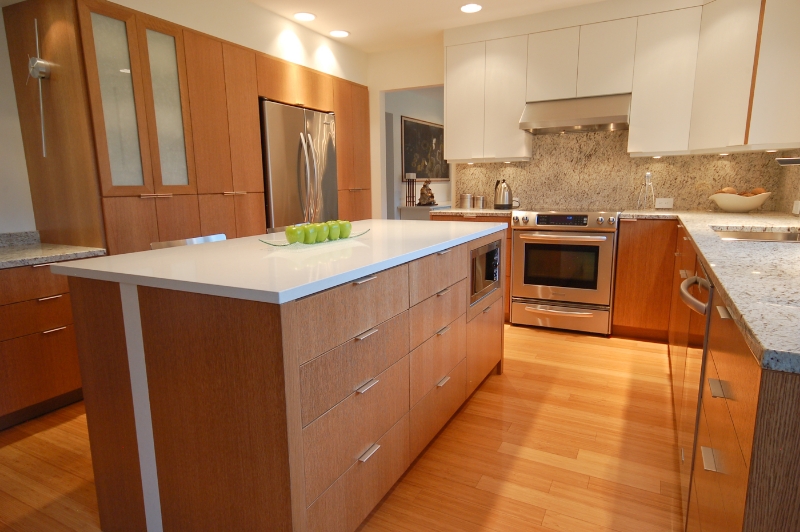Clean your cabinets regularly. Countertops, cabinet doors, and shelves should be wiped down with a dampened cotton cloth and then wiped dry. If there is grease, oil, or food
liquid, use mild soap and water and then promptly dry with a soft cotton cloth. Don’t use ammonia-based cleaners, soaps with dye, abrasive cleaners, or self-polishing waxes. For this reason, don’t use a dish sponge to clean cabinet surfaces, as it may contain residue of harsh detergents.Clean up spills. Cabinet surfaces must be kept dry. Spills should be cleaned up immediately, using a blotting motion to soak up the liquid. Avoid wiping the spill, as it may spread the liquid over more of your cabinet’s surface. Don’t allow water or spray-on detergents to “soak in” or dry onto the surfaces.
Store kitchen items responsibly. Don’t place hot pans on the countertop. Don’t place wet or hot dishes back into cupboards. Avoid hanging wet towels from cabinet handles or over cabinet doors. Don’t place coffee makers, kettles, or other appliances that generate heat or steam where they will directly affect cabinet surfaces.
Avoid abrasives. Don’t use steel wool, powdered cleaners, or scouring pads (including rough sponges). These methods may damage the surface and allow food or moisture to enter the finish.
Wood is an organic substance and prone to degradation, wear, and tear. The care that it receives will impact the way it ages in your kitchen. Proper care and maintenance will keep your custom kitchen cabinets looking as good as new for years to come.









